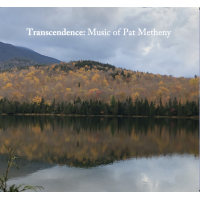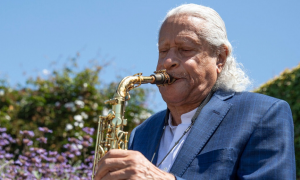Home » Jazz Articles » Interview » Steve Howe: Great Guitars and Great Guitarists
Steve Howe: Great Guitars and Great Guitarists
![Steve Howe [photo by Ueli Frey]—Copyright © 2010 Bruce Lindsay](https://s3.amazonaws.com/allaboutjazz/media/large/9/e/b/f3fe50474aa18acc2d897d301bc2c.jpg)
"I'm in the studio at the moment, recording a new album with Asia," says Howe, as he finds a quiet corner where he can relax and talk. In his biography on Guitar Rondo, his website, Howe talks of buying a Gibson L5 guitar in 1972 and immediately going home to record a 
Wes Montgomery
guitar1923 - 1968

Kenny Burrell
guitar, electricb.1931
Howe's earliest exposure to jazz resulted from the advice of his brother and sister, who were determined that the young Howe should broaden his musical experiences. He began playing guitar in 1959 at the age of 12, playing pop tunes like many other youngsters at the time.
"It was only after about two years of playing that jazz started to creep in. After a couple of years of putting up with me being a beginner pop and rock guitarist my brother and sister got really fed up with me and they said look, this stuff you're listening to is really no good, this is what you should be listening to. They pointed me to jazz first of all and then to classical, to great guitarists that they wanted me to listen to."
"The first jazz guitarist I really heard was 
Django Reinhardt
guitar
1910 - 1953
Barney Kessel
guitar, electric
1923 - 2004
Shelly Manne
drums
1920 - 1984
Ray Brown
bass, acoustic
1926 - 2002
Tal Farlow
guitar
1921 - 1998
Joe Pass
guitar
1929 - 1994
"In 1972, when I got the Gibson L5 guitar— maybe it's a bit of a silly thing to say—but I realized that there is much more to jazz than jazz guitar. I saw it much more broadly—I started to see the effect that 
Gil Evans
composer / conductor
1912 - 1988
Miles Davis
trumpet
1926 - 1991 Forty or fifty years as a jazz fan has given Howe a lot of time to absorb the music's influence—in what ways has it influenced his playing? "I think it comes back to sound ... What got me about jazz guitar was how much I liked the sound. I like the sound of all guitars, to be honest, but when I heard jazz guitar my ears tweaked to those kinds of textures. Barney Kessel would have a very acoustic sound. Kenny Burrell was more electronic and how he cared for that sound was fantastic: I'm sure he produced that sound consistently through his career, his guitar really does carry that sound. So I got interested in sounds, really to the point where I can recognize a lot of guitarists within a few seconds of hearing them. I loved seeing these people playing as well—it wasn't just about sitting at home listening to the records. Some of these people I was too late to see, of course.
Forty or fifty years as a jazz fan has given Howe a lot of time to absorb the music's influence—in what ways has it influenced his playing? "I think it comes back to sound ... What got me about jazz guitar was how much I liked the sound. I like the sound of all guitars, to be honest, but when I heard jazz guitar my ears tweaked to those kinds of textures. Barney Kessel would have a very acoustic sound. Kenny Burrell was more electronic and how he cared for that sound was fantastic: I'm sure he produced that sound consistently through his career, his guitar really does carry that sound. So I got interested in sounds, really to the point where I can recognize a lot of guitarists within a few seconds of hearing them. I loved seeing these people playing as well—it wasn't just about sitting at home listening to the records. Some of these people I was too late to see, of course. 
Hank Garland
guitar
1930 - 2004
"That jazz sound is something I would try to get, even on the early Yes albums in the 1970s. You can hearing me switch to the front pickup, maybe even have the tone off—on Tales From Topographic Oceans (Atlantic, 1973) for example. I kept getting Yes to buy into me being able to play bits of jazzy music: there's some on 'Perpetual Change' and 'Yours Is No Disgrace' on The Yes Album (Atlantic, 1971), which was the first album I did with the band. There's also country picking—I'm in no way a purist—but jazz guitar has a very special sound, something that's continually remarkable to me."  One of Howe's most famous compositions is a solo instrumental, "The Clap" (The Yes Album), written to celebrate the birth of his son, drummer
One of Howe's most famous compositions is a solo instrumental, "The Clap" (The Yes Album), written to celebrate the birth of his son, drummer 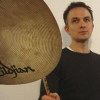
Dylan Howe
drums
With Howe's love of jazz in mind it's striking how the rhythm is reminiscent of stride piano: "I think you might be picking up on some very subtle things here," Howe suggests, before seeking to correct a misapprehension. "It's called 'Clap'—the 'The' was never intended, but Jon [Anderson, Yes vocalist] called it 'The Clap' on the live recording." In fact, on the recording Anderson introduces the piece by saying "This is a song called 'The Clap.'" "Yes, he does," laughs Howe, "and I didn't like it. It's a shame he didn't edit that bit out."
"It was a celebratory experience to write the song on the birth of my first child. As far as influences go, Chet Atkins was quite a driving force at that time. He plays some very jazzy things and I love the overlays and things that he does. So I wrote 'Clap' primarily in a Chet Atkins style." There's another, lost, version of the song that Howe is keen to rediscover: "There's a recording I made at home where I jazzed-up 'Clap.' I took the rhythms and added some jazz elements and found a way of playing it which I'd like to hear again—because I couldn't re-invent it. There was also a time when I'd play it and I could hear be-bop elements in the timing of some of it."
Howe's distinctive sound was emphasized on stage with Yes by his choice of guitar. While most rock and prog players sported Fender Stratocasters and Telecasters, Gibson Les Pauls and SGs, Howe's full-bodied electric-acoustic Gibson gave him visual as well as aural distinctiveness. The visual image resulted from his conscious choice of instrument, as he explains: "After I'd been playing for five years my parents said to me 'You're doing really well, have you thought about going further?' and I thought, 'Now I need a really great guitar.'"
The "great guitar" was the Gibson ES175 that Howe still uses. "The decision to buy that guitar set me on a course" he continues. "By the time I was in Yes I had a Gibson ES5 as well and I started to use multiple guitars of that style. I didn't consider myself to be someone who played solid bodied guitars at that time. It was a conscious decision because I loved the look of the 175. It's here with me today, it's a remarkable instrument and it's helped me to forge an identity as a guitarist with a full sound that isn't reliant on distortion or tremolo or other gadgets. I use the multiple pickups with the groups I play in but when I play with the Trio I only use the front pickup really. I might use another pickup once or twice but for the most part it's the pure front pickup with no effects—I can play like that for the whole evening. This guitar has proved itself to me time and time again."
Howe's love of his 45-year-old ES175 leads him to be very protective of it: "I've been very precious with this guitar. Only a few people have ever played it—
Martin Taylor
guitar
b.1956
Chuck Berry
guitar, electric
1926 - 2017
 Outside jazz, Howe's early influences came from the country scene and from the first days of rock and roll. "Bill Haley's guitarist, Franny Beecher, was one of my earliest influences. I think he played a Les Paul Custom." Beecher also has a jazz connection, having played with
Outside jazz, Howe's early influences came from the country scene and from the first days of rock and roll. "Bill Haley's guitarist, Franny Beecher, was one of my earliest influences. I think he played a Les Paul Custom." Beecher also has a jazz connection, having played with 
Benny Goodman
clarinet
1909 - 1986
Howe name checks guitarists from a wide range of backgrounds, all of which have been key to the development of his style: "
Charlie Byrd
guitar
1925 - 1999
Laurindo Almeida
guitar
1917 - 1995
Modern Jazz Quartet
band / ensemble / orchestra
b.1952 Steve Howe Trio, from left: Ross Stanley, Steve Howe, Dylan Howe
Steve Howe Trio, from left: Ross Stanley, Steve Howe, Dylan Howe
Howe briefly adds flamenco guitarist 
Paco de Lucia
guitar
1947 - 2014
Howe's enthusiasm for music and musicians means that he leaps constantly from one admired artist to another. He reveals that he saw 
Jaco Pastorius
bass, electric
1951 - 1987
Miles Davis
trumpet
1926 - 1991
"Miles was a father figure of jazz—and Sketches of Spain (Columbia, 1960) is a very important album for me. Along with Gil Evans, Miles took Rodrigo's music to another place. Hearing music re-interpreted in that way made me feel that I could do it, too."
Of all Howe's many references to his favorite musicians during the interview, one memory in particular stands out: seeing guitarist Wes Montgomery playing at Ronnie Scott's jazz club in London, when Howe was only 16-years old. "Wes Montgomery was one of the most original jazz guitarists," he declares. "But what I remember most about seeing him at Ronnie's was his smile—his smile was remarkable all night long."
In 2007, Howe joined his son, Dylan, and Hammond organist Ross Stanley to form the Steve Howe Trio. This year will see the Trio taking to the road again to tour the UK, as well as releasing their second album, Traveling (HoweSound Records). Jazz features heavily in the Trio's repertoire, as Howe explains: "Dylan started to play drums when he was about 20. Soon afterwards I invited him to play on a recording with me but he said 'No, not yet,' which impressed me. He wanted to find his own sound before we worked together." Dylan went on to play with a range of bands and musicians including alt-country outfit Wilco and also The Blockheads. Playing with the latter band, Dylan met Israeli-born saxophonist 
Gilad Atzmon
saxophone
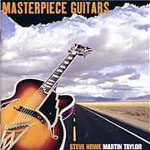 "In 1993, Dylan and I recorded together for the first time and we played together on and off after that. Then, four or five years ago at Christmas, we talked about playing together in a small group. We decided to put together a band to play some of my stuff, some old Yes material and a selection of jazz by guys like Kenny Burrell or
"In 1993, Dylan and I recorded together for the first time and we played together on and off after that. Then, four or five years ago at Christmas, we talked about playing together in a small group. We decided to put together a band to play some of my stuff, some old Yes material and a selection of jazz by guys like Kenny Burrell or 
Jimmy Smith
organ, Hammond B3
1925 - 2005
Howe and his fellow trio members are always looking to introduce new material into their set. "We've just added two new numbers" he says. "Ross Stanley and me are going to duet on the old Hollies number, 'He Ain't Heavy He's My Brother,' and we've also added a Miles Davis number, 'Tune Up.' There will probably be more additions soon—we want to keep things fresh."
Keeping things fresh after 45 years is no mean feat, but Steve Howe's undeniable enthusiasm for music ensures that he'll carry on doing so for some time to come—with his love of jazz as a vital influence.
Selected Discography
Steve Howe Trio, Traveling (HoweSound, 2010)
Steve Howe Trio, The Haunted Melody (HoweSound, 2008)
Asia, Phoenix (EMI America, 2008)
Steve Howe, Spectrum (Inside Out, 2005)
Steve Howe/Martin Taylor, Masterpiece Guitars (P3 Music, 2004)
Steve Howe's Remedy, Elements (Inside Out, 2003)
Steve Howe, Natural Timbre (Spitfire, 2001)
Yes, Keys To Ascension (Essential Records, 1996)
Anderson, Bruford, Wakeman and Howe, An Evening Of Yes Music Plus (Fragile Records, 1993)
Anderson, Bruford, Wakeman and Howe, Anderson, Bruford, Wakeman, Howe (Arista, 1989)
Asia, Asia (Geffen Records, 1982)
Steve Howe, The Steve Howe Album (Atlantic/WEA, 1979)
Yes, Going For The One (Atlantic, 1977)
Steve Howe, Beginnings (Atlantic/WEA, 1975)
Yes, Tales From Topographic Oceans (Atlantic, 1973)
Yes, The Yes Album (Atlantic, 1971)
Photo Credits
Page 1: Ueli Frey
Pages 2, 3: Bruce Lindsay
Tags
Comments
PREVIOUS / NEXT
Support All About Jazz
 All About Jazz has been a pillar of jazz since 1995, championing it as an art form and, more importantly, supporting the musicians who make it. Our enduring commitment has made "AAJ" one of the most culturally important websites of its kind, read by hundreds of thousands of fans, musicians and industry figures every month.
All About Jazz has been a pillar of jazz since 1995, championing it as an art form and, more importantly, supporting the musicians who make it. Our enduring commitment has made "AAJ" one of the most culturally important websites of its kind, read by hundreds of thousands of fans, musicians and industry figures every month.



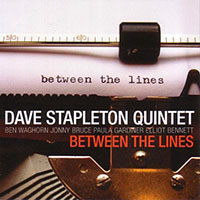

 Buy Now
Buy Now



